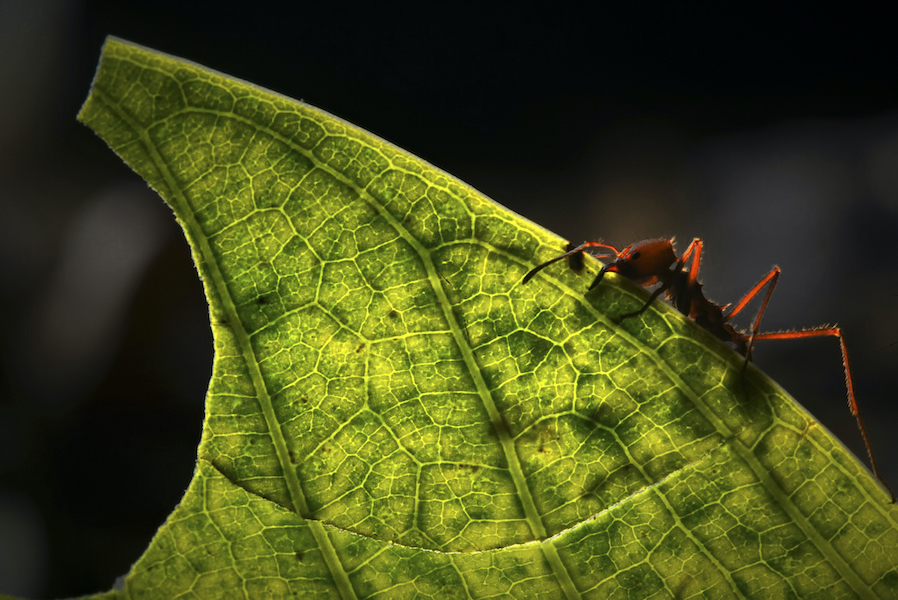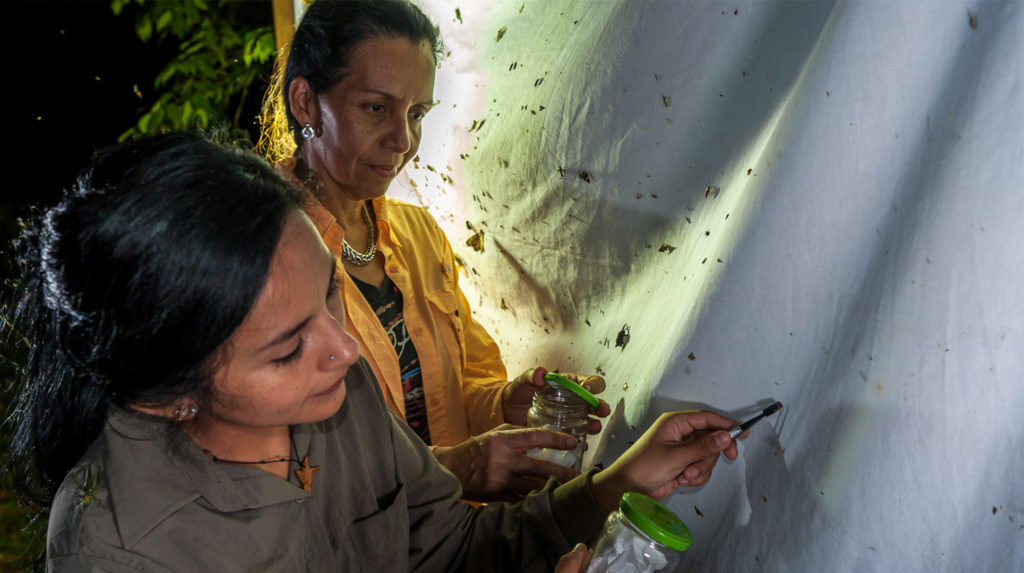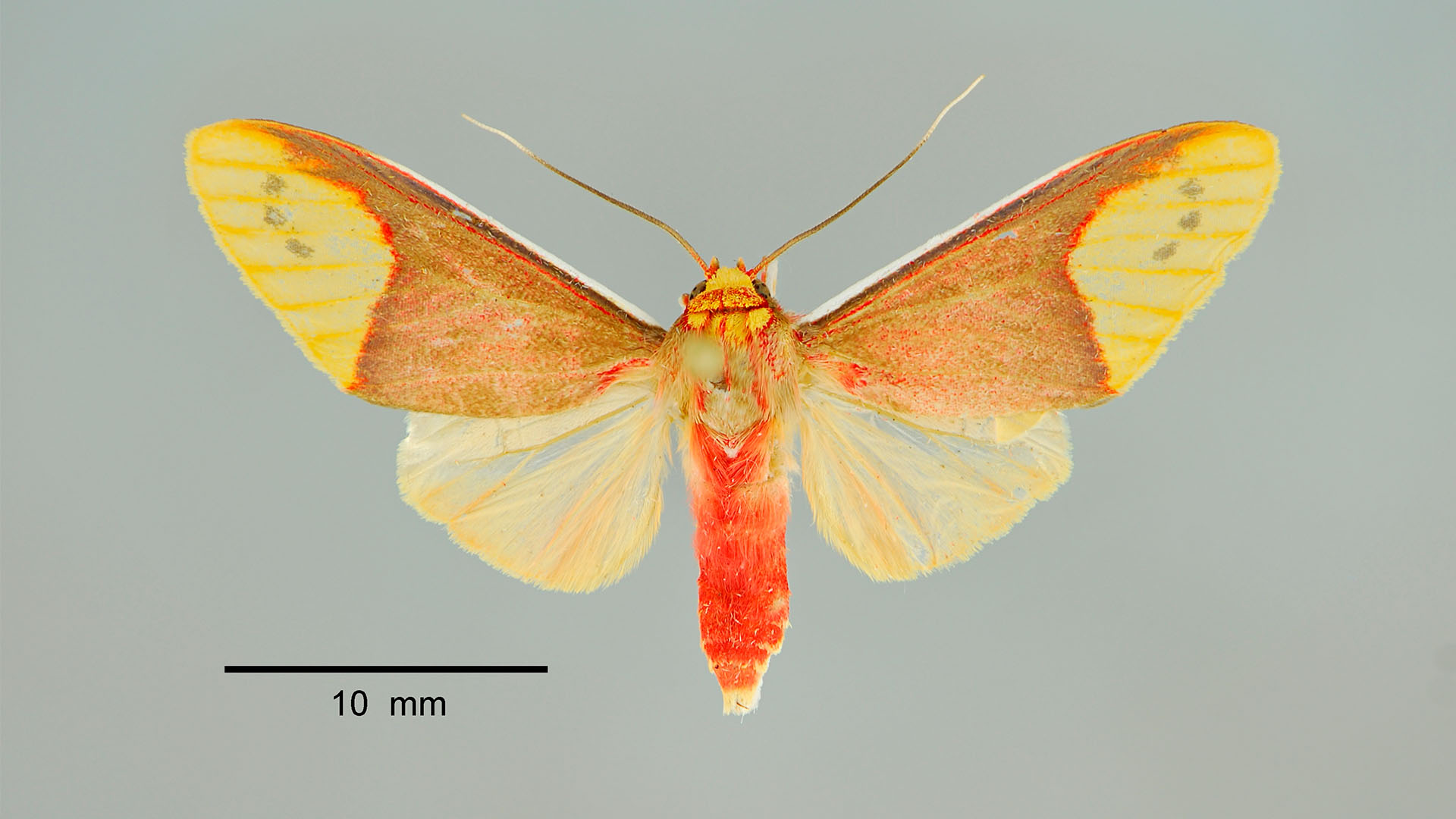Insects are the most diverse group of animals in the world. Nowadays we have more than 1’013,000 (one million thirteen thousand) described species. Nevertheless, some scientists predict that there are actually between 8 and 10 million species.
This means, that we have more non-described species than the biodiversity we know.
So, anyone may ask, why are there so many undiscovered species in the 21st century?
Because of two main facts; there are not enough specialists for all of the groups to describe the new species, and, there are not scientists researching in some of the inaccessible places of the earth.

Leaf-cutter Ants by Paul Bertner
A "specialist" is someone that focuses on one single-family, genus, or any type or group of living beings. Having these labels means that this person knows almost all the described species of the group of study in the world. There are some families of moths that can have more than 200,000 species; this massive diverse group needs a big number of experts to be studied.
On the Tambopata National Reserve, in all this huge piece of the protected area, we are trying to document the mysteries of some families of insects in long-term studies. Imagine how many new species we could discover if all of the groups of insects were researched for many years just in Tambopata, or in the jungle of Congo in West Africa or in all the islands of Indonesia? With all the required specialists, something that we don’t have yet, probably we could get a better view of the whole biodiversity that inhabits this pristine tropical rainforest.

Everyone can make science happen. Light trap at Refugio Amazonas Lodge
In 2016 we began to run an innovative program called Wired Amazon that consists of three scientific projects based on Citizen Science.
Being a Citizen Scientist is a way to make everyone (meaning everyone without a scientific background) being actually involved in science. People can help in different ways, collecting information or analyzing data for example. This works perfectly in projects that demand huge amounts of data or time processing a lot of information. This is the perfect alliance for creating awareness and making Science available to everyone.
Science needs to be public in all ways. Is not useful to have scientific papers published in scientific journals that the only scientist understands. The ones that make the decisions in the world are not the only scientist. We have politicians, owners of companies, industry leaders, school and university teachers, and many different people that make important decisions that affect the world.
Wired Amazon wants to achieve a positive impact on everyone's interest in the Amazon for tourism or just learning. Share with them our huge dream of preserving the Amazon Rainforest.
One of the projects we are running in the Amazon is Discover A New Species; led by the specialist Dr. Juan Grados, in which we are focused on contributing to filling the hole knowledge of biodiversity studying 4 families of insects: Tiger Moths, Scorpion Wasps, Leaf Hoppers and Tree Hoppers.

Evius occasus - Discovered by Michael Loia & Giovanna Loia, 2016
Each night we turn on a light trap and invite every guest at our eco-lodge to help us collecting those specimens of insects. Without the guest's help, we can’t take as many specimens as we need in our project.
The most amazing of this is that if a guest collects a specimen that is a new species, they can name it. Would you imagine going on a jungle tour in the heart of the Amazon Rainforest and then know you had discovered a new species of insect? And that you will be able to name it?
Don’t lose the opportunity to visit the Wired Amazon Program while in Refugio Amazonas Lodge and get these chance yours.